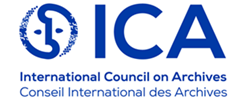CCAAA policy statement: Sharing of heritage
All countries have the same right and need to preserve and have access to their national memory. Films, programs and recordings released in multiple countries sometimes do not survive in their country of origin. Moreover, during the last century, many former colonies have gained national independence and, in consequence, have often moved to establish national archives and other repositories for cultural and historical records, including audiovisual documents.
A characteristic of colonial status was that audiovisual documents were often created by organisations which operated under the auspices of the colonizing power. As a result, the films and recordings they created gravitated to the colonizing country and frequently have not survived in the country whose history and culture they document. Conversely, the opposite situation can also occur and the former colonizing power may no longer have material which does survive in the country of origin.
These countries thereby have a shared heritage, a shared moral ownership and a shared interest in the preservation and accessibility of such material. Giving practical expression to this shared interest requires the cooperation of relevant production companies, archives and rights owners.
Since audiovisual documents can be replicated, the movement of audiovisual heritage from one country to another does not necessarily entail the physical return of original negatives or other master materials. It does, however, entail the creation of copies for access, the clearance of rights and, where necessary, the establishment of agreements between the two countries to secure the preservation of the master materials in whichever country they are located.
CCAAA therefore declares the following principles:
- Every country should have full access to its national memory, including its audiovisual memory, regardless of where the material has survived or been archived.
- The joint moral ownership of colonial era material is recognized. As far as possible such material should be readily accessible in both the colonizing country or countries and the former colony or colonies.
- Cultural agreements on a government-to-government basis, and an archive-to-archive basis, should be developed to give practical effect to the sharing of heritage with the country which requests it. Practicality should determine the analogue or digital solutions employed.
- The costs of sharing should be borne as fairly as possible, having regard to the economic situation of the governments and archives concerned. It is legitimate to seek sponsorship or other external financial assistance to this end.
All archives within the CCAAA umbrella are encouraged to give effect to these principles in the following ways:
- Developing fraternal relationships with appropriate archives;
- Alerting other archives to collection material of possible interest to them;
- The development and exchange of “want lists”;
- The facilitation of collection research;
- Collaboration between archives in approaching sponsors and governments in the quest for financial and practical support;
- Establishing archive-to-archive agreements which ensure the competent management and ethical use of reinstated material.
CCAAA policy statement: Sharing of heritage
All countries have the same right and need to preserve and have access to their national memory. Films, programs and recordings released in multiple countries sometimes do not survive in their country of origin. Moreover, during the last century, many former colonies have gained national independence and, in consequence, have often moved to establish national archives and other repositories for cultural and historical records, including audiovisual documents.
A characteristic of colonial status was that audiovisual documents were often created by organisations which operated under the auspices of the colonizing power. As a result, the films and recordings they created gravitated to the colonizing country and frequently have not survived in the country whose history and culture they document. Conversely, the opposite situation can also occur and the former colonizing power may no longer have material which does survive in the country of origin.
These countries thereby have a shared heritage, a shared moral ownership and a shared interest in the preservation and accessibility of such material. Giving practical expression to this shared interest requires the cooperation of relevant production companies, archives and rights owners.
Since audiovisual documents can be replicated, the movement of audiovisual heritage from one country to another does not necessarily entail the physical return of original negatives or other master materials. It does, however, entail the creation of copies for access, the clearance of rights and, where necessary, the establishment of agreements between the two countries to secure the preservation of the master materials in whichever country they are located.
CCAAA therefore declares the following principles:
- Every country should have full access to its national memory, including its audiovisual memory, regardless of where the material has survived or been archived.
- The joint moral ownership of colonial era material is recognized. As far as possible such material should be readily accessible in both the colonizing country or countries and the former colony or colonies.
- Cultural agreements on a government-to-government basis, and an archive-to-archive basis, should be developed to give practical effect to the sharing of heritage with the country which requests it. Practicality should determine the analogue or digital solutions employed.
- The costs of sharing should be borne as fairly as possible, having regard to the economic situation of the governments and archives concerned. It is legitimate to seek sponsorship or other external financial assistance to this end.
All archives within the CCAAA umbrella are encouraged to give effect to these principles in the following ways:
- Developing fraternal relationships with appropriate archives;
- Alerting other archives to collection material of possible interest to them;
- The development and exchange of “want lists”;
- The facilitation of collection research;
- Collaboration between archives in approaching sponsors and governments in the quest for financial and practical support;
- Establishing archive-to-archive agreements which ensure the competent management and ethical use of reinstated material.












